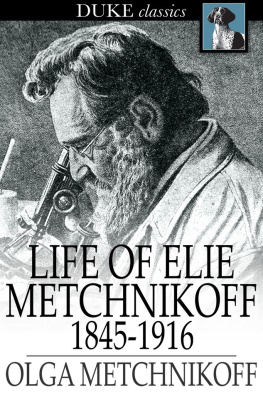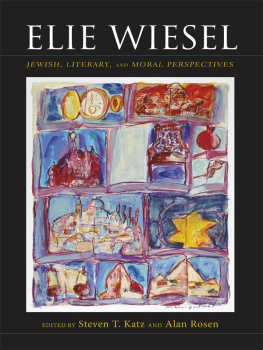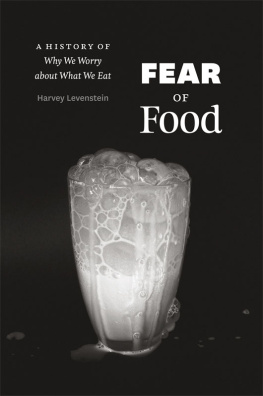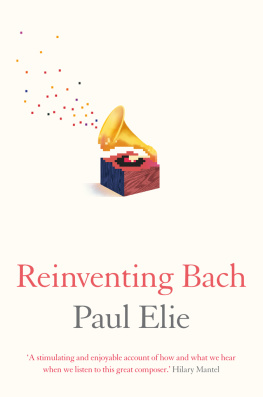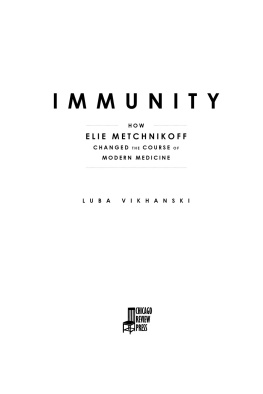Olga Metchnikoff - Life of Elie Metchnikoff: 1845-1916
Here you can read online Olga Metchnikoff - Life of Elie Metchnikoff: 1845-1916 full text of the book (entire story) in english for free. Download pdf and epub, get meaning, cover and reviews about this ebook. year: 2014, publisher: Duke Classics, genre: Non-fiction. Description of the work, (preface) as well as reviews are available. Best literature library LitArk.com created for fans of good reading and offers a wide selection of genres:
Romance novel
Science fiction
Adventure
Detective
Science
History
Home and family
Prose
Art
Politics
Computer
Non-fiction
Religion
Business
Children
Humor
Choose a favorite category and find really read worthwhile books. Enjoy immersion in the world of imagination, feel the emotions of the characters or learn something new for yourself, make an fascinating discovery.
- Book:Life of Elie Metchnikoff: 1845-1916
- Author:
- Publisher:Duke Classics
- Genre:
- Year:2014
- Rating:3 / 5
- Favourites:Add to favourites
- Your mark:
- 60
- 1
- 2
- 3
- 4
- 5
Life of Elie Metchnikoff: 1845-1916: summary, description and annotation
We offer to read an annotation, description, summary or preface (depends on what the author of the book "Life of Elie Metchnikoff: 1845-1916" wrote himself). If you haven't found the necessary information about the book — write in the comments, we will try to find it.
Russian scientist Elie Metchnikoff was a Nobel Prize winner who vastly advanced our understanding of the immune system and is credited with creating the field of gerontology, which is the study of aging, lifespans, and longevity. Penned by his wife, this thoughtful and probing biography presents a detailed account of the obstacles Metchnikoff overcame on the path to scholarly prominence.
Life of Elie Metchnikoff: 1845-1916 — read online for free the complete book (whole text) full work
Below is the text of the book, divided by pages. System saving the place of the last page read, allows you to conveniently read the book "Life of Elie Metchnikoff: 1845-1916" online for free, without having to search again every time where you left off. Put a bookmark, and you can go to the page where you finished reading at any time.
Font size:
Interval:
Bookmark:

1845-1916
First published in 1921
ISBN 978-1-62013-794-9
Duke Classics
2014 Duke Classics and its licensors. All rights reserved.
While every effort has been used to ensure the accuracy and reliability of the information contained in this edition, Duke Classics does not assume liability or responsibility for any errors or omissions in this book. Duke Classics does not accept responsibility for loss suffered as a result of reliance upon the accuracy or currency of information contained in this book.
It has been a great satisfaction to me to carry out the wish of mydear friend Elie Metchnikoff, and arrange for the production of anEnglish translation of his biography. The account of his life and workwritten by Olga Metchnikoff is a remarkable and beautiful record ofthe development and activities of a great discoverer. It is remarkablebecause it is seldom that one who undertakes such a task has had soconstant a share in, and so complete a knowledge and understanding of,the life portrayed as in the present case: seldom that the intimatethought and mental "adventure" of a discoverer presents so clear andconsistent a history. It is beautiful because it is put before us withperfect candour and simplicity guided by rare intelligence and inspiredby deep affection. Madame Metchnikoff has drawn the picture of thedevelopment of a single-minded character absolutely and tenaciouslydevoted to a high purposethe improvement of human life. It is astory of "struggles and adventures," but they are wholly in the fieldof the investigation of Nature. We read here little or nothing of thequest for personal advancement, for fortune or official position.These things had no attraction for Metchnikoff. He left Russia andtook an unpaid post in Paris in order to have a place to work in. Hehad many devoted friends in whose company he sought refreshment andrelaxation, but all his immense energy and industry were concentratedon the development and establishment of his great biological theoryof "Phagocytosis" and its outcome, the philosophy of life called byhim "Orthobiosis." This volume tells truly of a simple lifea life inwhich the social incidents which fill so large a space in most liveswere either non-existent or unnoticed because, by the side of the greatpurpose which dominated Metchnikoff's every thought and actionnamely,the advancement of Sciencehe was not touched by them. He wasaffectionate, kind-hearted, and truly considerate of others, but was,in a way which is traceable to his racial origin, a practical idealistconcentrating his whole strength and reason on the realisation of whathe held to be the highest good.
I had as an eager reader of memoirs on biological subjects becomeacquainted with Metchnikoff's earliest publications in 1865, whenhe was twenty years of age and I two years younger. I wrote shortaccounts of them, as they appeared, for a chronicle of progress in theQuarterly Journal of Microscopical Science, then edited by my father.Those on a European Land Planarian, on the development of Myzostomum(the parasite of the Feather-Star), on Apsilus, a strange new kind ofwheel-animalcule, and his protest against Rudolf Leuckart's treatmentof him in the matter of his important discoveries concerning theFrog's lung-wormAscaris nigrovenosaremain in my memory, andlater, in 1872, I was especially struck by his important demonstrationof the true mode of development of the gastrula of the calcareoussponges in correction of Professor Ernst Haeckel. Many other papersof his became known to me, until in 1881 he published his firstobservations on Intracellular Digestion in Lower Animals, which wasthe starting-point of his life's work on "Phagocytosis," to which allhis subsequent researchesduring thirty-five yearswere exclusivelydedicated.
In 1888 I was introduced by my friend Lauder Brunton to the greatPasteur, and called on him at his laboratory in the rue d'Ulm. There Imet Metchnikoff, only lately arrived from Russia, and welcomed as oneof his staff by Pasteur. The next year, 1889, Pasteur was installedin the new "Institut Pasteur" in the rue Dutot, and I met Metchnikoffthere in his new quarters. Pasteur's assistants were carrying on dailyhis system of inoculation against rabies, and many British subjectswere amongst those treated. I persuaded the Lord Mayor of that year,Sir James Whitehead, to visit the Pasteur Institute with a view totaking steps to make some recognition of the services rendered byPasteur to our fellow-countrymen in treating over two hundred of themthreatened with hydrophobia. Sir James called a meeting on July 1,1889, at the Mansion House, and placed the management of it in myhands. As a result we obtained subscriptions to a fund which enabledus to assist many poor British subjects to visit Paris for the purposeof undergoing M. Pasteur's treatment, to make a donation of 30,000francs to the Pasteur Institute, and to initiate with a sum of 300 theformation of a fund for the purpose of establishing an Institute inLondon similar in purpose and character to the Institut Pasteur. Thatinitial fund has step by step received generous additions and given usthe "Lister Institute" on Chelsea Embankment possessed of buildings,site, and capital valued at more than 300,000.
After 1889 it was rare for a year to pass without my visiting Parisboth in spring and summer, and seeing a great deal of Metchnikoffand his friends Roux, Duclaux, Laveran, and the great master of thePastorians, who died in 1895. Metchnikoff took me to his home andcemented his friendship with me by bringing to me that of his giftedand devoted wife.
Madame Metchnikoff had when a schoolgirl studied zoology under herfuture husband at Odessa, and now was able to give serious help insome of his researches. She published some experimental investigationon the sterilisation of the alimentary canal of tadpoles and someother researches, and having a thorough knowledge of English, whichElie did not possess, she helped him in reading and translating fromthat language. But her chief talents were in the arts of painting andsculpture, and when they purchased their country house at Svres, shebuilt a studio in the garden in which to pursue her vocation.
Metchnikoff on several occasions came to England to take part in"congresses" or to give special addresses, and often stayed a day ortwo with me in London. I was with him at the Darwin Celebration atCambridge in 1909, and the last occasion when he came was to give thePriestley Lecture of the National Health Society in November 1912.At my request he selected "The Warfare against Tuberculosis" as hissubject, and gave a most valuable account of the history and actualcondition of that enterprise, relating the important results of hisexpedition to the Kalmuk Tartars for the purpose of studying theimmunity from and the liability to infection by tuberculosis amongthat nomad population. The lecture was delivered in French, and I madea translation of it which appeared with numerous illustrations in thejournal called Bedrock, published by Constable & Co. I mention thatpublication here as it is the only one excepting the three lectures on"The New Hygiene" (Heinemann, London, 1906) originally published inan English form by Metchnikoff, and deserves more attention from theEnglish medical public than it has received.
I found Metchnikoff a delightful companion. He always had somethingnew or of special interest to show to me at the laboratorysomemicroscopical preparation, the digestive process in Protozoa,the microbian parasite of a water-flea, a new method of darkground illumination with high powers (Commandant's method for filmproduction), the newly discovered Treponema of syphilis, or theexperimental inoculation of a disease under study. Sometimes Iwould lunch at his house, when, although he neither smoked nor tookalcoholic drinks himself, he made a point of giving me first-rateclaret and a good cigar. It was about the year 1900 that he arrangedfor the preparation of a pure "sour milk" made by the use of a speciallactic ferment (selected and cultivated by himself), and this he tookregularly. I found it a most agreeable food, and for several years madeit an article of my own diet. He was very careful about the possiblecontamination of uncooked food by bacteria and the eggs of parasiticworms, and in consequence had "rolls" sent to him from the bakers eachin its separate paper bag, whilst he would never eat uncooked salads orfruit which could not be rendered safe by "peeling." This was not anexcess of caution, but resulted from his characteristic determinationto carry out in practice the directions given by definite scientificknowledge, and to make the attempt to lead so far as possible a lifefree from disease. Often when I arrived in Paris he would invite me tolunch at one of the leading cafs, and though he ate very simple foodhimself took keen pleasure in ordering the best for me and thoroughlyenjoyed the change of scene and the amenities of a first-raterestaurant. During one of his visits to London, I remember that he wasinvited, and I with him, on two or three occasions, by leading Londonphysicians to dinner-parties. He was greatly shocked at the amount ofstrong wine which his hosts and fellow-guests consumed, and assured methat in Paris it would be injurious to the reputation of a physicianwere he not to set an example of either abstinence or great moderation.
Font size:
Interval:
Bookmark:
Similar books «Life of Elie Metchnikoff: 1845-1916»
Look at similar books to Life of Elie Metchnikoff: 1845-1916. We have selected literature similar in name and meaning in the hope of providing readers with more options to find new, interesting, not yet read works.
Discussion, reviews of the book Life of Elie Metchnikoff: 1845-1916 and just readers' own opinions. Leave your comments, write what you think about the work, its meaning or the main characters. Specify what exactly you liked and what you didn't like, and why you think so.

